Did you know that around 50% of women trust homemade pregnancy tests today? Even with advanced medical tech, many still turn to DIY methods. This trend is often due to cultural reasons, a lack of access, and not knowing about other options. But the big question is, are these tests made from soap or vinegar really reliable?
Many women choose homemade tests because of their culture, lack of access to medical services, and not knowing about other choices. So, from homemade pregnancy tests to diy pregnancy detection, women continue to use natural fertility indicators. This includes tests like the vinegar ovulation test and the soap pregnancy confirmation. These methods are still popular for women wanting to do at-home fertility checks. But, we wonder if these DIY methods give accurate results?
This article looks closely at from soap to vinegar homemade pregnancy tests. We check out why people still use them and if they work. By looking at cultural and access reasons, we aim to understand why these tests are still around. And we hope to offer advice to those looking for different ways to test their fertility.
The Persistence of Homemade Pregnancy Tests
Homemade pregnancy tests stick around for many reasons. Not everyone can get to healthcare centers, especially those in remote areas. This, combined with strong cultural beliefs, means women often choose these tests over going to the doctor. Many avoid medical help due to misinformation and the stigma against talking about reproductive health.
Cultural Beliefs and Accessibility Issues
Homemade tests are trusted because of what women are told in their families and communities. This happens a lot in places with no easy access to proper healthcare. The lack of options for real tests and medical advice in these areas makes homemade testing more common.
Misinformation and Stigma Surrounding Reproductive Health
False information and the stigma around reproductive health are big reasons homemade tests are used. People don’t always know the facts or feel comfortable talking about it. This keeps them from seeing a doctor and drives them to homemade tests instead.
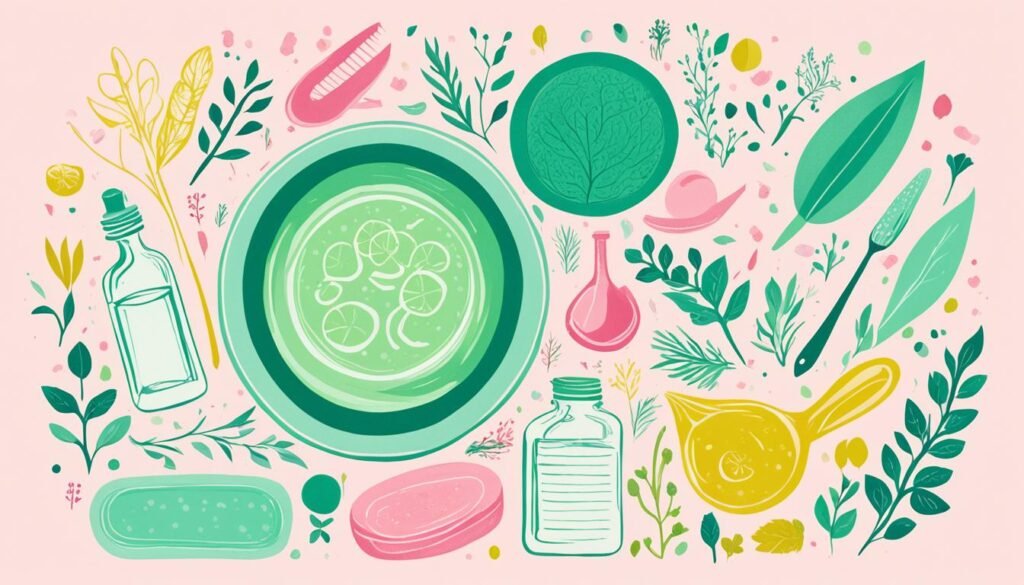
How Medical Professionals Confirm Pregnancy
Medical professionals have several methods to check if someone is pregnant. They use these methods to be sure and check on the health of the mother and baby. These methods are more trustworthy than homemade pregnancy tests.
Measuring hCG Levels in Urine or Blood
Doctors usually start by looking at how much human chorionic gonadotropin (hCG) is in the patient’s urine or blood. HCG is a hormone made during pregnancy. Its amount goes up as the pregnancy continues. This check is very accurate. Home pregnancy tests from the store are about 99 percent accurate too.
Ultrasound Scans and Physical Examinations
Doctors also use ultrasound scans and physical exams to see the baby and mother’s health. They can look at the fetus and how it’s growing through ultrasound. A physical exam gives insights into the mother’s health and the pregnancy’s progress.
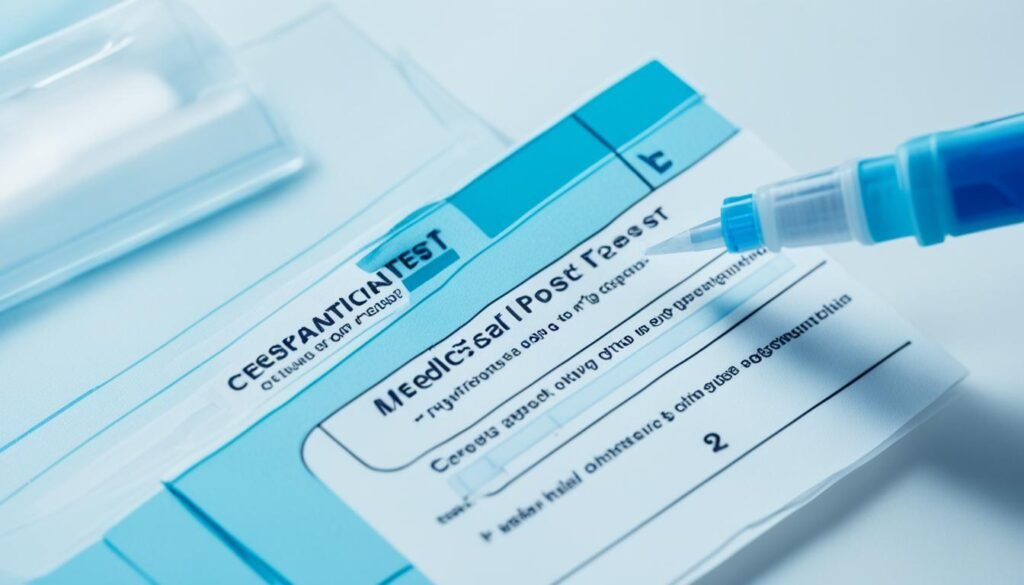
By using these methods, doctors can confirm a pregnancy reliably. This helps make sure the mother and her baby get the right care and check-ups during the pregnancy.
From soap to vinegar. Do homemade pregnancy test
Pregnancy tests look for a hormone called human chorionic gonadotropin (hCG). Medical professionals use approved tests for pregnancy confirmation. Some use homemade tests with items like soap, vinegar, and baking soda. Yet, these methods are not proven to be accurate.
Soap Pregnancy Test
The soap pregnancy test includes pouring urine on soap to see if bubbles form. The thought is, hCG in the urine makes bubbles when mixed with soap. But, this method is not backed by science. Any positive result should be checked by a doctor.
Vinegar Ovulation Test
The vinegar ovulation test mixes urine and vinegar to find signs of fertility. Some say a color change or bubbles means you’re ovulating. But, this test isn’t proven. It shouldn’t be used to check if you’re pregnant or fertile.
Baking Soda Pregnancy Confirmation
The baking soda pregnancy test mixes urine with baking soda to check for bubbling. Like other homemade tests, it’s not scientifically reliable. Always confirm any positive results with a medical pregnancy test.
Homemade pregnancy tests might seem cheap and easy to use. But, they don’t give the same trustworthy results as official tests. It’s smarter to talk to a healthcare provider for an accurate pregnancy test.
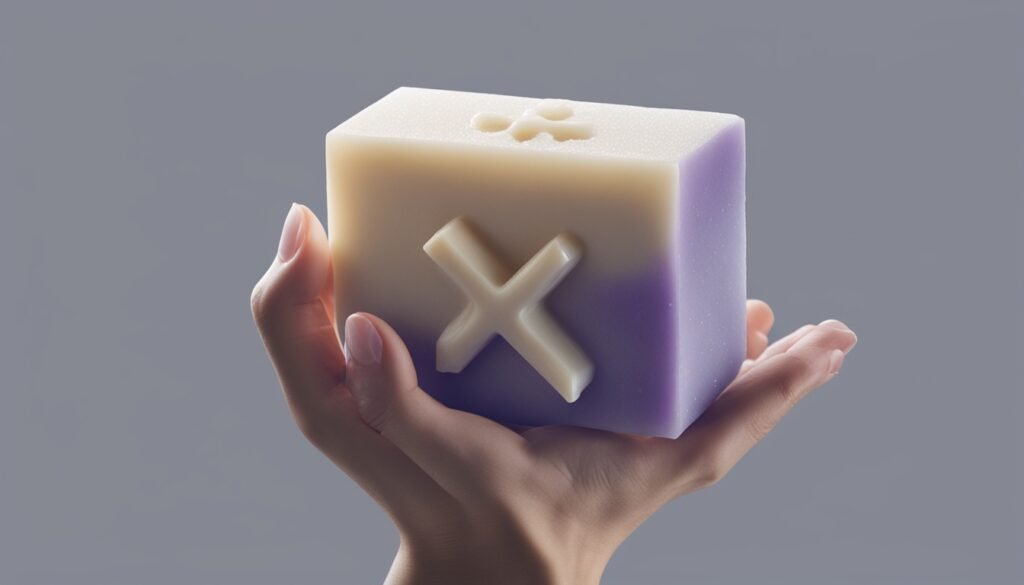
Common Household Items for Homemade Tests
Some people use things like sugar and salt for homemade pregnancy tests. They say these can show if someone is pregnant. But, these tests are not proved to work well.
Sugar Pregnancy Test
In the sugar test, you mix a little urine with white sugar. The idea is if it turns thick, you might be pregnant. But, it’s not a sure way to know. Urine and its reaction to sugar can change, making this method unreliable.
Salt Pregnancy Test
The salt test is like the sugar one, but with salt. A cloudy result might mean you’re pregnant. Still, scientists say this test is not accurate. The way salt and urine mix is not a good pregnancy check.
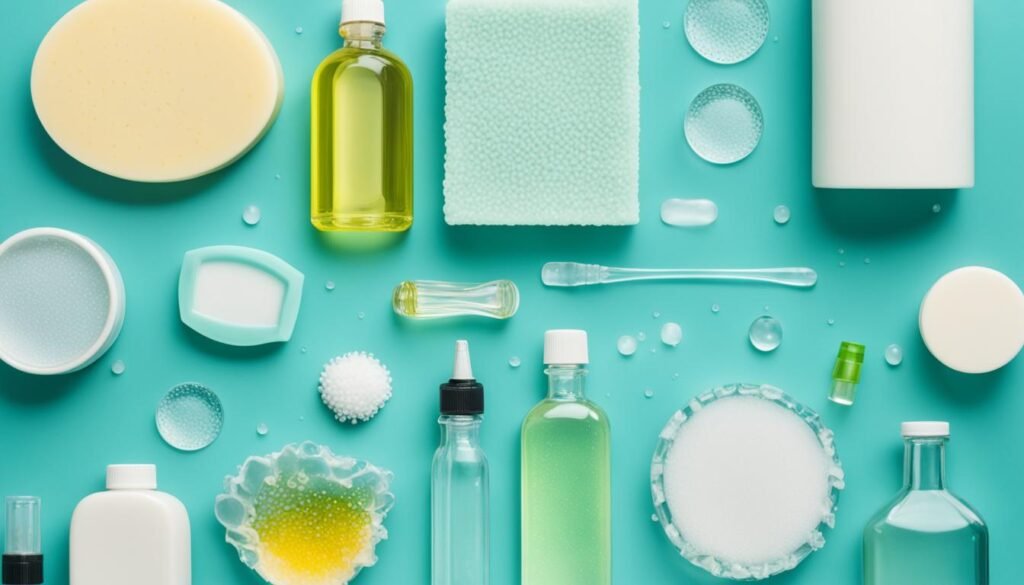
Though these home tests are easy and cheap, they aren’t the best choice. Using tests approved by doctors is smarter. It’s important for the health of the mom and baby to trust tested methods for finding out if you’re pregnant.
The Science Behind Pregnancy Tests
Pregnancy tests are key in confirming if you’re expecting. They check for human chorionic gonadotropin (hCG), a hormone released when pregnant. Knowing the science behind pregnancy tests helps people pick the best, most reliable tests.
Detecting hCG Levels
Pregnancy tests find hCG amounts in urine or blood. Higher hCG levels mean a baby is growing, confirming pregnancy. Tested and trusted kits from your pharmacy catch even tiny hCG amounts, giving very accurate results.
Accuracy of Homemade Tests
Making a pregnancy test at home with soap, vinegar, or baking soda doesn’t work. These ways just spread from stories and can be wrong. Sometimes, they show you’re pregnant even if you’re not. Real, approved pregnancy tests are about 99% right when you use them as directed.
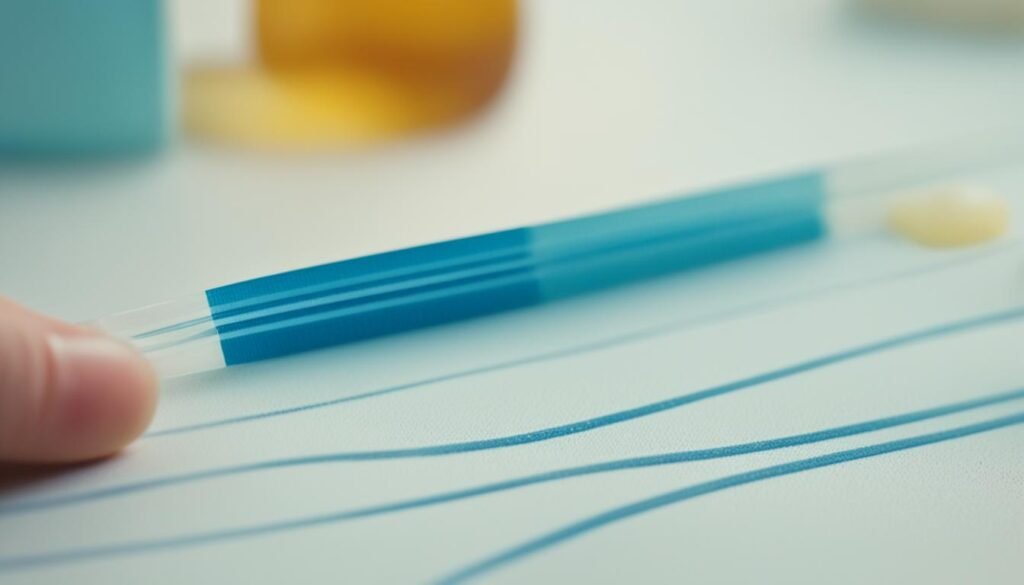
Tried and True: Reliable Pregnancy Tests
Reliable pregnancy tests are the best for making sure you’re pregnant. You can find them in stores or talk to your doctor. They look for a hormone called human chorionic gonadotropin (hCG) in your body. When used the right way, they’re about 99 percent accurate.
Don’t rely on tests you make at home with things like soap or baking soda. These homemade tests are not backed by science. Even if some stories say they worked, they might not be as dependable. Always go for the tests doctors approve of.
It’s smart to see a doctor and use reliable pregnancy tests early on. This way, you get the care you and your baby need in time. While homemade tests seem easy and cheap, they could give you wrong information. This might make you worry for no reason or miss out on important healthcare.
When you want to know if you’re really pregnant, pick a test from a trusted place. They are proven to be accurate. This can help you feel sure and ready whatever your test shows.
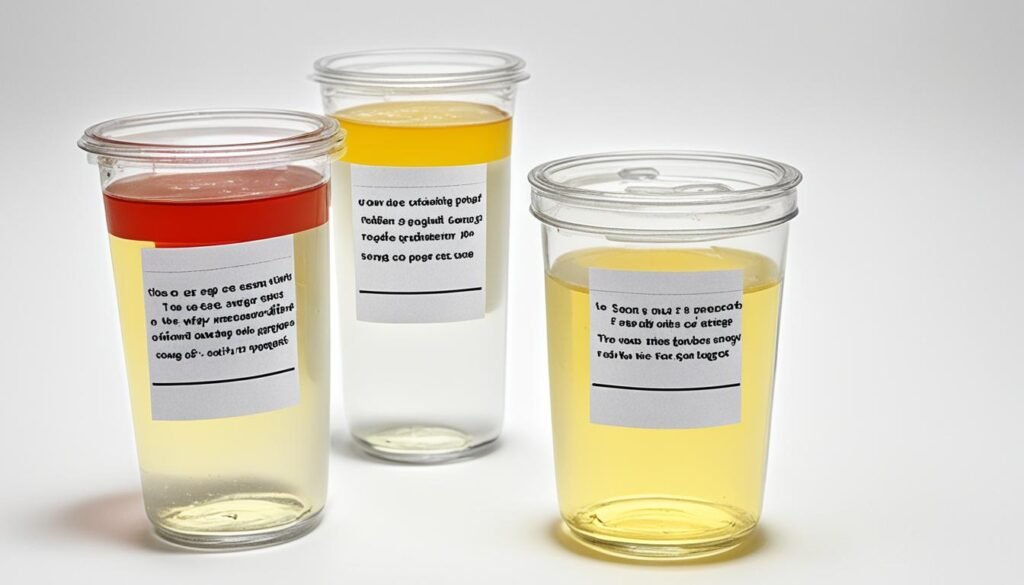
Benefits of Homemade Pregnancy Tests
Homemade pregnancy tests are not as accurate as store-bought ones but bring many women benefits. These include being in private, saving money, and using common household items. Many find this method appealing due to its privacy and ease of access.
Privacy and Discretion
Some find buying a pregnancy test at a store or clinic stressful. Making one at home lets women handle it quietly, without needing to see a doctor or go out in public.
Cost-Effectiveness
Cost is a major plus for homemade tests. They use items like vinegar, soap, or baking soda, already in many homes. This means much less cost than buying a test kit.
Availability of Ingredients
Having the items at home for a test is a big deal. It’s much easier than making a trip to the store. For women wanting to keep things private or who can’t get to a doctor, this is a great option.
Notwithstanding these benefits, the key is using a proper pregnancy test for real results. Your best bet is always a test approved by doctors. This is crucial for confirming pregnancy and starting good care early.
Considerations for Accurate Results
Testing for pregnancy must be done carefully for the best results. This is true whether you’re using homemade methods or a store-bought test. Knowing what to look for helps people choose wisely and ensures their test is very reliable.
Using First Morning Urine
The highest level of the pregnancy hormone shows up in your first urine in the morning. This means first morning urine is best for testing. It makes any test, even homemade ones, more likely to spot a pregnancy. Remember this when you’re thinking about using a non-traditional test.
Collecting Sufficient Sample
It’s key to have enough urine for a homemade test to be accurate. Too little urine can mess up the test’s chemicals. So, making sure you collect a good amount of urine is crucial. This way, homemade tests stand a better chance of being right.
Repeating Tests for Confirmation
Homemade pregnancy tests don’t have solid scientific backing. Because of this, it’s smart to retest to confirm using the same or different methods. A single homemade test might be wrong, showing a false positive or negative. Testing again clears up any doubt and gives a more dependable answer.
Conclusion
Homemade pregnancy tests may still be used by some women. Yet, they don’t have solid proof or accuracy. It’s better to trust tests approved by doctors for certain results. Seeking advice from a medical professional should always be the first step. This ensures an accurate pregnancy check and the right prenatal care.
Things like soap, vinegar, and baking soda are often used for DIY pregnancy tests. This is because they are easy to find around the house. But, these “tests” are not backed by science and can give false results. On the other hand, standard home pregnancy tests, bought from stores, are very reliable. They claim to be about 99% accurate with proper use.
It’s essential to follow what medical experts suggest for your health decisions. Relying on just DIY tests could lead to wrong conclusions about pregnancy or care. Using tests approved by healthcare professionals and consulting doctors is the wise choice. This way, women get the best and most accurate information about their pregnancy and health.
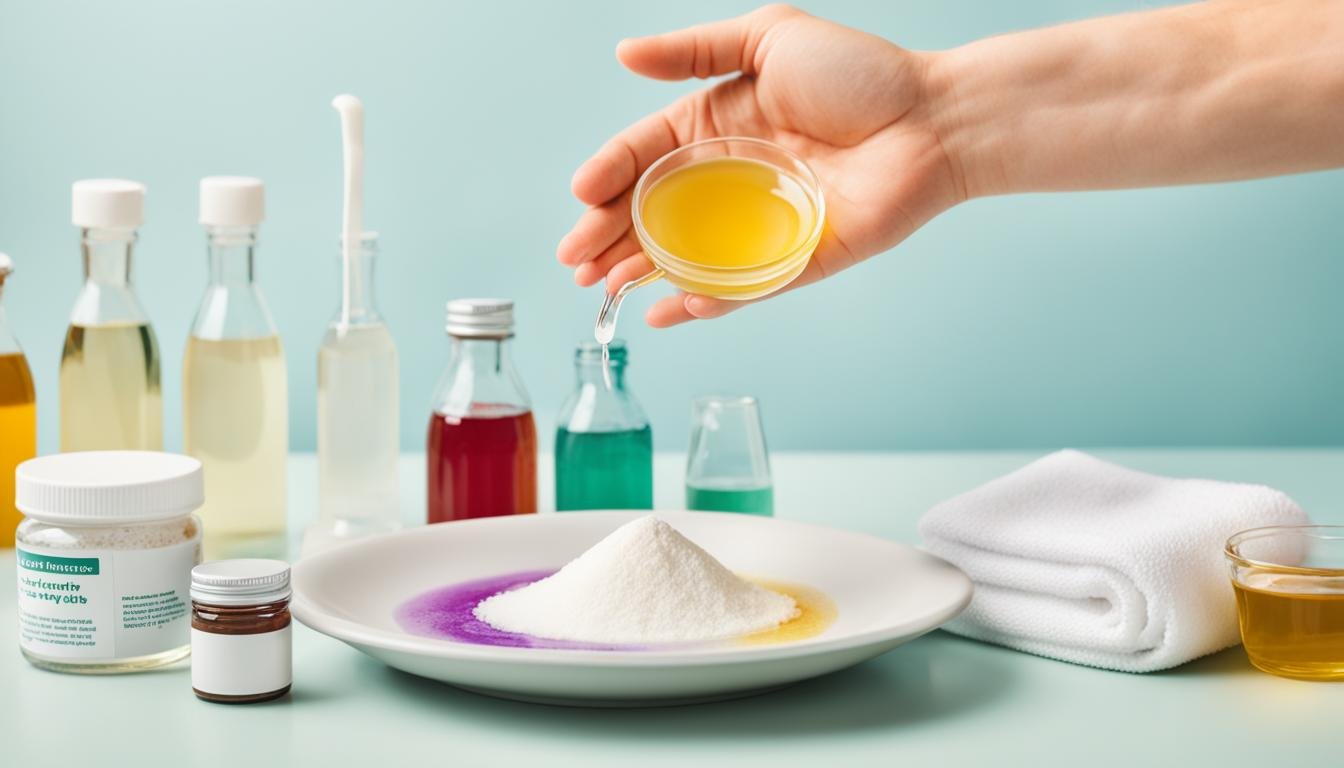
Thank you for this comprehensive guide. The practical tips you’ve shared are going to be very useful for my work.
Your point of view caught my eye and was very interesting. Thanks. I have a question for you.
Yes Please